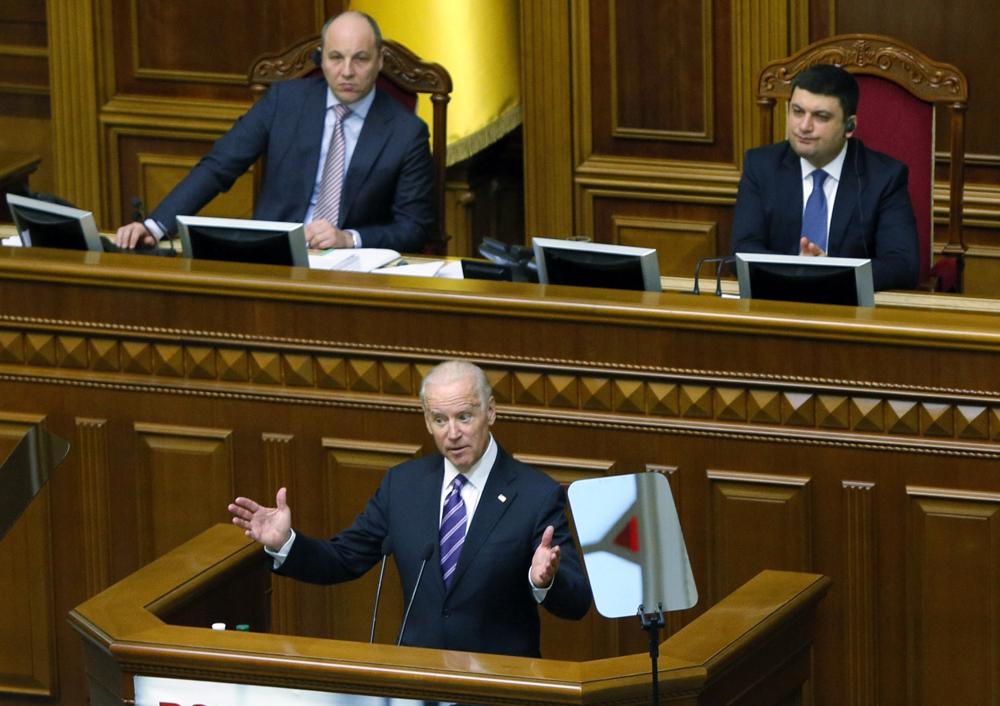
WASHINGTON — The Ukrainian parliament thundered with applause as Joe Biden stepped into the wood-paneled chamber a little more than six years ago. Five hundred miles to the south and east, Russian troops and separatists were occupying parts of the country, and President Barack Obama had dispatched his vice president in a show of solidarity with the besieged nation.
His voice rising, Biden declared that Ukraine could demonstrate that aggressors “can’t use coercion, bribery, sending tanks and men across a border to extinguish the dreams and hopes of a people.”
“For if you succeed” — Biden rapped his fist on the podium — “that message is sent around the world.”
Ukraine’s government was unable to retake the land it lost, and now the world waits to see what message will be sent as Russia readies what might be another, more expansive invasion that could end the nation’s short history as an independent republic.
Such an attack would be the most difficult test yet for a president who has made the defense of democracy a cornerstone of his administration. If Biden’s threats of sanctions, shipments of weapons and intelligence operations are not enough to deter war, his next challenge will be holding together a fractious international coalition to punish Russia both economically and diplomatically.
Biden planned to speak Friday with allies on both sides of the Atlantic as Western officials estimate that Moscow has between 169,000 and 190,000 troops in and around Ukraine.
Until recently, the U.S. president’s long political career has paralleled democracy’s expansion across Europe. Unlike Russian President Vladimir Putin, a former intelligence officer who views the collapse of the Soviet Union as a cascade of indignities, Biden cheered the so-called color revolutions that swept through former Soviet republics and supported the eastward expansion of NATO.
Daniel Fried, a longtime U.S. diplomat in the region, said Biden is someone with “a belief in the free world — without ironic tones.”
“It’s not put on,” he said. “It’s real.”
Now, decades of progress could be rolled back in dramatic fashion in a country where Biden invested years of work to hold the line against Russian aggression.
“He represents an older generation of American politicians who grew up in the Cold War and for whom the trans-Atlantic community is the center of gravity,” said Charles Kupchan, who served on Obama’s National Security Council and traveled with Biden when he spoke to the Ukrainian parliament.




